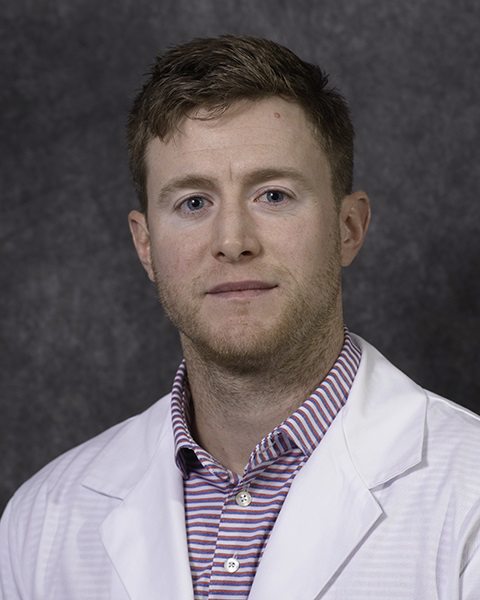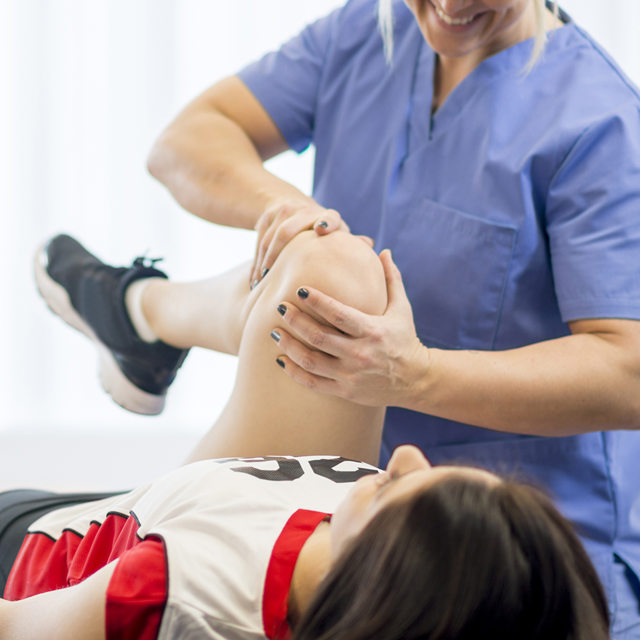
Expert Care for Concussions and Head Injuries
Concussions
Concussion is a term for a head injury that temporarily interferes with the way your brain works. It can affect attention, memory, judgment, reflexes, balance, coordination, and sleep patterns. Most commonly, concussions result from car accidents, falls, and impact sports.
If you sustain any blow to the head, it’s important you seek a concussion assessment and, if needed, treatment to avoid long-term brain damage.
What are the Symptoms of a Serious Concussion?
The symptoms of concussion vary depending on the severity of the head injury. Some concussions require emergency treatment. Signs of a severe head injury include:
- Obvious trauma to the head, including bleeding or bruising
- Weakness, numbness or decreased coordination
- Vomiting or nausea
- Slurred speech
- Losing consciousness, being very drowsy or unable to wake up
- One pupil being larger than the other
- Having convulsions or seizures
- Not being able to recognize people or places
- Becoming increasingly confused or agitated
- Displaying unusual behavior
- For infants and children, being inconsolable or refusing to nurse or eat
What are the Symptoms of a Mild Concussion?
Mild concussions can be harder to spot but they can still have a major impact. Symptoms of a mild concussion may appear immediately, or they might appear days, weeks, and even months after the injury. Make an appointment with your primary care physician for concussion treatment if you experience the following symptoms after a head injury.
- Physical symptoms: Headache, blurry vision, nausea or vomiting, dizziness, sensitivity to light or sound, problems with balance, and fatigue
- Cognitive symptoms: Difficulty thinking, concentrating, or remembering new information
- Emotional symptoms: Feeling irritable, sad, or anxious and experiencing mood swings
- Sleep symptoms: Difficulty falling asleep and sleeping more or less than usual
How are Concussions Diagnosed?
To diagnose and treat a concussion, your doctor will start by asking you or a witness about the injury. He or she will want to know how it happened, where the head was struck, and if there were any immediate symptoms, such as loss of consciousness. Loss of consciousness does not occur with all concussions. You could still have a concussion even if you didn’t lose consciousness.
Next, your doctor will perform a neurological exam. This will include checking your hearing, vision, reflexes, balance, strength, memory, and concentration. If you have symptoms of a severe concussion, your doctor will order an imaging test to check for swelling or bleeding in the brain.
How is a Concussion Treated?
Physical rest is essential to concussion recovery. Sports, exercise, and other activities that put you at risk for another head injury must be avoided. Your doctor will also prescribe some degree of mental rest. Depending on your symptoms, this could range from having a reduced work or school schedule to avoiding anything that requires thinking. That includes reading, looking at a smartphone screen, working or playing on a computer, and watching TV.
Other symptoms may require specialized concussion treatment. For instance, if you have balance problems, migraines or neck pain, your doctor may recommend outpatient physical therapy.

Orthopedics / Orthopedic Surgery
Sports Medicine
Penn Highlands Orthopedics and Sports Medicine - Charleroi
Penn Highlands Orthopedics and Sports Medicine - Rostraver TownshipA Service of Penn Highlands Mon Valley

Neurology
Penn Highlands Neurology - DuBoisA Service of Penn Highlands DuBois

Orthopedics / Orthopedic Surgery
Sports Medicine
Penn Highlands Orthopedics and Sports Medicine - California
Penn Highlands Orthopedics and Sports Medicine - Charleroi
Penn Highlands Orthopedics and Sports Medicine - Rostraver TownshipA Service of Penn Highlands Mon Valley
Penn Highlands Orthopedics and Sports Medicine - Uniontown
View Providers Practice
Neurology
Penn Highlands Neurology - DuBoisA Service of Penn Highlands DuBois


Neurology
Neurology Hospitalist
Penn Highlands Neurology - DuBoisA Service of Penn Highlands DuBois

Neurology
Penn Highlands Neurology - DuBoisA Service of Penn Highlands DuBois

Sports Medicine
Penn Highlands Orthopedics and Sports Medicine - ClarionA Service of Penn Highlands DuBois
Penn Highlands Orthopedics and Sports Medicine - DuBois COEA Service of Penn Highlands DuBois
Penn Highlands Orthopedics and Sports Medicine - St. MarysA Service of Penn Highlands DuBois
View Providers Practice
Orthopedics / Orthopedic Surgery
Sports Medicine
Penn Highlands Orthopedics and Sports Medicine - Charleroi
Penn Highlands Orthopedics and Sports Medicine - Rostraver TownshipA Service of Penn Highlands Mon Valley
Penn Highlands Concussion Clinics
The Penn Highlands Concussion Clinics are centers dedicated to the diagnosis and treatment of concussions. We treat patients of all types and ages: small children, student athletes, adults, and the elderly.
Concussion Clinics have an orthopedic/sports medicine physician and a neuropsychologist on staff. They work closely with Penn Highlands physical therapists to provide comprehensive concussion treatment. That includes concussion evaluation, testing, setting up a concussion treatment plan, and managing concussion recovery.
What are the Dangers of an Undiagnosed Concussion?
The short- and long-term effects of not treating a concussion can be severe. Second-impact syndrome—when a patient incurs a second concussion before the first is healed—can even be deadly. Although not life threatening, more common side effects of an untreated concussion can be loss of memory, lack of ability to concentrate, and impaired cognitive skills. Some parents report seeing their teens struggling in school months after a concussion.
This is why it is so important to get a proper diagnosis. If you or your child suffers a head injury and you’re unsure if it’s a concussion, seek medical treatment. Do not return to sports—including practice—or other physical activity until you know for sure.
ImPACT Testing Provides Baseline Info
ImPACT, which is an acronym for Immediate Post-Concussion Assessment and Cognitive Testing, is a pre-concussion screening. It is a computerized tool that aids concussion diagnosis and management by providing a pre-concussion baseline measure. It’s ideal for use with athletes and others who are at high risk for concussion.
ImPACT testing involves the measurement of verbal and visual memory, brain processing speed and reaction time. Athletes should have a baseline ImPACT screening prior to their sports season to record normal neurological function. If a head injury occurs, an athlete then takes the test again. The test results are compared to the baseline measurements to determine if a concussion occurred. The test may then be repeated periodically to assess concussion recovery and help release an athlete to return to playing.
ImPACT testing is offered free by Penn Highlands Outpatient Physical Therapy Departments.


